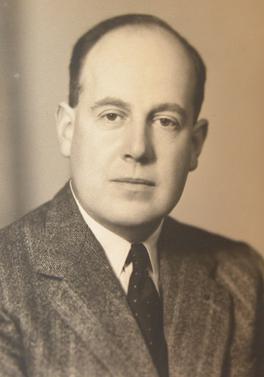

Queer Places:
Felbrigg Hall, Gardens and Estate, Felbrigg, Norwich NR11 8PR, UK
Harrow School, 5 High St, Harrow HA1 3HP, UK
University of Oxford, Oxford, Oxfordshire OX1 3PA
 Robert
Wyndham Ketton-Cremer, FSA, FRSL, FBA (2 May 1906 – 12 December 1969) was an
English landowner, biographer and historian. He bequeathed his family seat,
Felbrigg Hall, to the National Trust.
Robert
Wyndham Ketton-Cremer, FSA, FRSL, FBA (2 May 1906 – 12 December 1969) was an
English landowner, biographer and historian. He bequeathed his family seat,
Felbrigg Hall, to the National Trust.
Robert Wyndham Cremer was born in Plympton, Devon,[1] on 2 May 1906 to Wyndham Cremer Ketton-Cremer and his wife Emily Bayly.[2][3] He was educated at Harrow School. He and his brother assumed the surname Ketton-Cremer in 1924. He won an exhibition to Balliol College, Oxford where he read English Literature.[4] While at Oxford he published poetry.[5]
He was a descendant of the Wyndham family, who owned the Felbrigg estate in Norfolk,[7] and was known as "the Last Squire".[6] He inherited the estate on the death of his father in 1933. Wyndham Ketton-Cremer's heir, his younger brother Richard, died in Crete during the Second World War. Ketton-Cremer also owned the Beeston Regis estate, including what is now Beeston Hall School.
Ketton-Cremer never married. He was a closet homosexual, at a time when homosexual acts were still criminalised though close friends were aware of his sexuality.[8] He stood godfather to the children of his friends, including Tristram Powell, son of novelist Anthony Powell, to whom the novel The Kindly Ones was dedicated. He read proofs of Powell's books and suggested improvements, up to the time of his death.[9]
He was a justice of the peace and as such was required to witness two hangings. He was a major in the East Norfolk Home Guard during the Second World War.[2] He served as High Sheriff of Norfolk in 1951-52[6] and was a trustee of National Portrait Gallery.[2]
Ketton-Cremer wrote widely on the history of his native Norfolk as well as number of biographies, including one of Whig statesman William Windham, one of politician Horace Walpole, and one of the poet Thomas Gray, for which he won the James Tait Black Award. An annotated bibliography was published in 1995.
In 1968, Ketton-Cremer was elected a Fellow of the British Academy (FBA).[7] He was also an elected Fellow of the Society of Antiquaries of London (FSA) and Fellow of the Royal Society of Literature (FRSL). He was awarded an honorary Doctor of Letters (LittD) by the University of East Anglia in 1969.[2]
Ketton-Cremer died on 12 December 1969. He bequeathed Felbrigg Hall to the National Trust.[6]
A brief memoir was written shortly after his death by the literary scholar Mary Lascelles.[7]
To mark the 50th anniversary of the decriminalisation of sexual activity between men in England and Wales, in summer 2017 the National Trust organised a national "Prejudice and Pride" campaign highlighting the LGBT themes in its properties. At Felbrigg Hall that included displaying a short film—narrated by Stephen Fry—in which it was revealed that Robert Wyndham Ketton-Cremer was gay, a fact previously only known to his close friends.[10] Two of Ketton-Cremer's godchildren criticised the decision, claiming that a public outing would have been against Ketton-Cremer's wishes and accusing the Trust of using their godfather's private life to generate publicity.[11] Fry defended the Trust's decision, arguing that Ketton-Cremer had only kept his sexuality a secret because of pervasive homophobia and fear of prosecution during his lifetime.[12]
My published books: